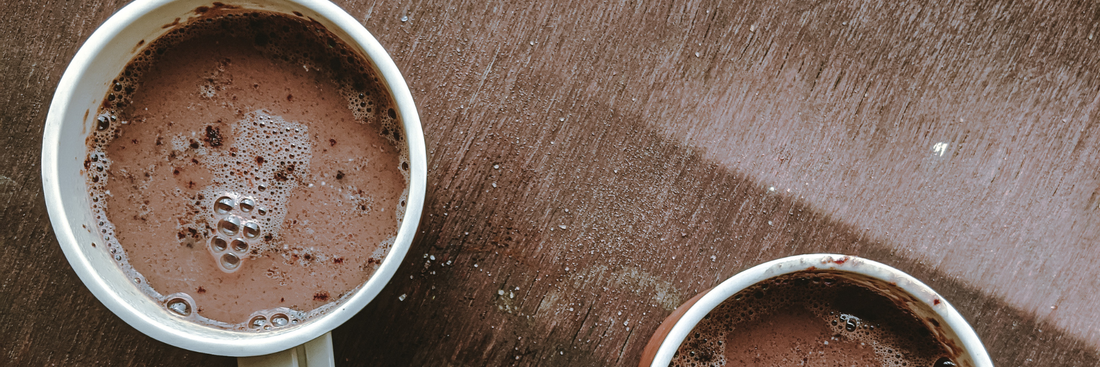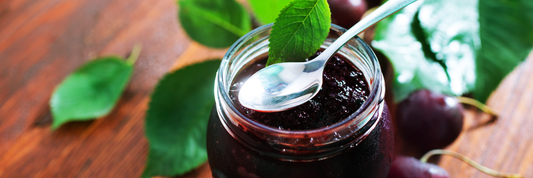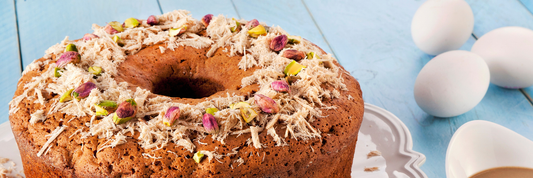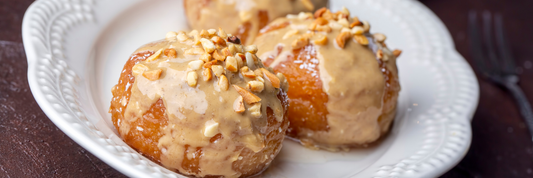Many people enjoy a warm cup of hot chocolate without realizing it contains more than just comfort; it also has a small amount of caffeine. So, does hot chocolate contain caffeine? The answer is yes, but far less than coffee or tea. Because it’s made from cocoa beans, hot chocolate naturally carries caffeine and theobromine, both mild stimulants. Understanding how much caffeine is in your drink can help you choose the right version for your lifestyle, whether you prefer a dark, rich indulgence or a light, soothing cup before bed.
- Top 15 Winter Beverages Keep You Warm This Winter
- Hot Cocoa vs Hot Chocolate: What’s the Real Difference?
-
Does Chocolate Contain Caffeine? Amount of Caffeine in Different Types of Chocolate
Does Hot Chocolate Contain Caffeine?
Why Chocolate (Cocoa Solids) Naturally Contains Caffeine
Yes, hot chocolate does contain caffeine, although in small amounts. This is because the cocoa solids used to make chocolate naturally contain both caffeine and theobromine, two mild stimulants found in cacao beans. During chocolate production, these compounds remain in the finished chocolate and are released when melted into milk or water to make hot chocolate. The darker and purer the chocolate, the higher the caffeine level tends to be.

Typical Caffeine Range in a Standard Serving of Hot Chocolate
A typical 8-ounce (240 ml) cup of hot chocolate made from cocoa or chocolate contains about 2 to 7 milligrams of caffeine, depending on the recipe and brand. Drinks made from pure melted dark chocolate may contain up to 15–25 milligrams per serving, while instant hot cocoa mixes often contain less than 5 milligrams.
For context, this is much lower than the caffeine in coffee or black tea, but enough to provide a mild stimulant effect for caffeine-sensitive individuals.
Factors Affecting Caffeine Levels: Cocoa Percentage, Serving Size, Preparation Method
Several factors influence how much caffeine ends up in your cup:
-
Cocoa percentage: The more cocoa solids your chocolate contains, the higher the caffeine content. A hot chocolate made from 70% dark chocolate has significantly more caffeine than one made with milk chocolate.
-
Serving size: A large 12–16 oz mug contains more total caffeine simply because it includes more chocolate or cocoa powder.
-
Preparation method: Drinks made with melted chocolate tend to have higher caffeine levels than those made with instant cocoa powder mixes, which are often more diluted and contain added milk solids and sugar.
-
Type of chocolate used: Milk chocolate-based drinks are milder (less caffeine), while dark chocolate or artisan blends have stronger stimulant effects.
How Hot Chocolate’s Caffeine Compares with Coffee, Tea & Soft Drinks
The caffeine in hot chocolate is modest compared to other common beverages:
-
Hot chocolate (8 oz): 2–7 mg caffeine
-
Black tea (8 oz): 40–70 mg caffeine
-
Green tea (8 oz): 20–45 mg caffeine
-
Drip coffee (8 oz): 90–120 mg caffeine
-
Cola (12 oz): around 30–40 mg caffeine
So even a rich cup of hot chocolate contains less than one-tenth the caffeine of coffee, making it a much gentler option for those seeking warmth and comfort without the strong buzz.
Compare Caffeine in Hot Chocolate vs Other Drinkings
Caffeine in Hot Chocolate vs Other Chocolate Drinks
Other chocolate-based drinks like mochas, chocolate milk, or energy beverages typically have more caffeine because of their added coffee or cocoa concentration. A café mocha, for instance, may contain 80–150 mg of caffeine due to the espresso content, while chocolate milk (served cold) has only about 2–7 mg, similar to standard hot chocolate. Drinks labeled “drinking chocolate” — made from melted chocolate bars — often have the highest caffeine levels among non-coffee chocolate beverages.
Caffeine in Hot Chocolate vs Tea
Tea contains significantly more caffeine than hot chocolate. Even a mild cup of green tea provides 20–45 mg, while strong black tea can reach 70 mg or more per cup. If you’re trying to avoid caffeine but still want a cozy hot beverage, hot chocolate is a gentler alternative for late evenings or caffeine-sensitive drinkers.

Caffeine in Hot Chocolate vs Coffee
A single cup of brewed coffee delivers 90–120 mg of caffeine, which is 15–30 times more than most hot chocolates. Even espresso-based drinks far exceed chocolate beverages. This makes hot chocolate a good option for those cutting back on coffee or avoiding jittery side effects while still enjoying a warm, comforting drink.

Who Should Be Aware of Caffeine in Hot Chocolate?
People with Caffeine Sensitivity, Sleep Issues or Children
Individuals who are sensitive to caffeine may still react to the small amount in hot chocolate, especially if consumed close to bedtime. Children, whose bodies process caffeine more slowly, may experience restlessness or difficulty sleeping if they drink multiple servings late in the day. It’s best to serve small portions and limit nighttime consumption.
Pregnant or Breastfeeding Individuals: Caffeine Intake Considerations
Health authorities generally recommend that pregnant people limit caffeine intake to 200 mg per day. Hot chocolate’s caffeine content is minimal, so it can fit comfortably within those guidelines. Still, those consuming other caffeinated products (coffee, tea, cola, chocolate desserts) should consider the cumulative amount.
Someone Managing Stimulant Intake or Trying to Reduce Caffeine Exposure
If you’re cutting down on caffeine for health, sleep, or anxiety reasons, hot chocolate can serve as a mild substitute for coffee or tea. Its low caffeine level offers a touch of alertness without overstimulation. Just remember that darker or richer blends have more caffeine, so choosing milk-based or instant cocoa mixes can keep your intake very low.
How to Reduce Caffeine in Your Hot Chocolate
Choosing Low-Cocoa or Milk Chocolate Versions (Lower Solids = Lower Caffeine)
Opt for milk chocolate instead of dark chocolate. Milk chocolate contains less cocoa mass and therefore less caffeine. The lighter the cocoa color and taste, the lower the caffeine content tends to be.
Use White Chocolate or Cocoa Butter Mixes (Virtually No Caffeine)
White chocolate is made from cocoa butter and contains no cocoa solids, which means it has virtually zero caffeine. White hot chocolate or cocoa butter–based drinks are great alternatives for those avoiding stimulants altogether.
Control Serving Size and Dilution (Milk vs Water, Smaller Cup)
Reducing the quantity of chocolate or cocoa powder in your recipe lowers caffeine naturally. Using more milk or water also dilutes caffeine concentration. Serving a smaller portion—like a demitasse rather than a large mug—helps minimize total intake without sacrificing taste.
Check Product Labels and Choose Brands with Minimal Caffeine Content
Commercial mixes often list caffeine information per serving. Choose instant hot cocoa mixes or low-cocoa options with clear labeling. Some brands even offer “caffeine-free hot chocolate” varieties made from natural flavorings and processed cocoa extracts with negligible stimulant levels.
How to Make Mexican Hot Chocolate – A Spiced Taste of Mexico
FAQs About How Much Caffeine in Hot Chocolate
How much caffeine does a cup of hot chocolate have?
Usually 2–7 mg per 8-oz cup, depending on the cocoa content and brand.
Is hot cocoa the same as hot chocolate when it comes to caffeine?
No. Hot cocoa has less caffeine because it’s made from cocoa powder, not full chocolate.
Which contains more caffeine: dark hot chocolate or milk hot chocolate?
Dark hot chocolate — higher cocoa solids mean more caffeine.
Are instant hot chocolate mixes caffeine-free?
Not completely, but they’re very low, often under 5 mg per serving.
Can you get caffeine-free hot chocolate?
Yes, some brands use processed or flavor-based mixes with zero caffeine.
Does white hot chocolate have caffeine?
No. White chocolate contains no cocoa solids, so it’s naturally caffeine-free.
Conclusion
So, does hot chocolate contain caffeine? Yes — but in very small amounts. The caffeine comes from cocoa solids, and the level depends on how much chocolate or cocoa powder you use. While dark versions contain a bit more, most hot chocolate drinks have less than 10 mg per cup, making them safe for kids, caffeine-sensitive adults, or anyone wanting a cozy, low-stimulant treat. Enjoy your hot chocolate mindfully, knowing it delivers comfort with just a touch of caffeine.







